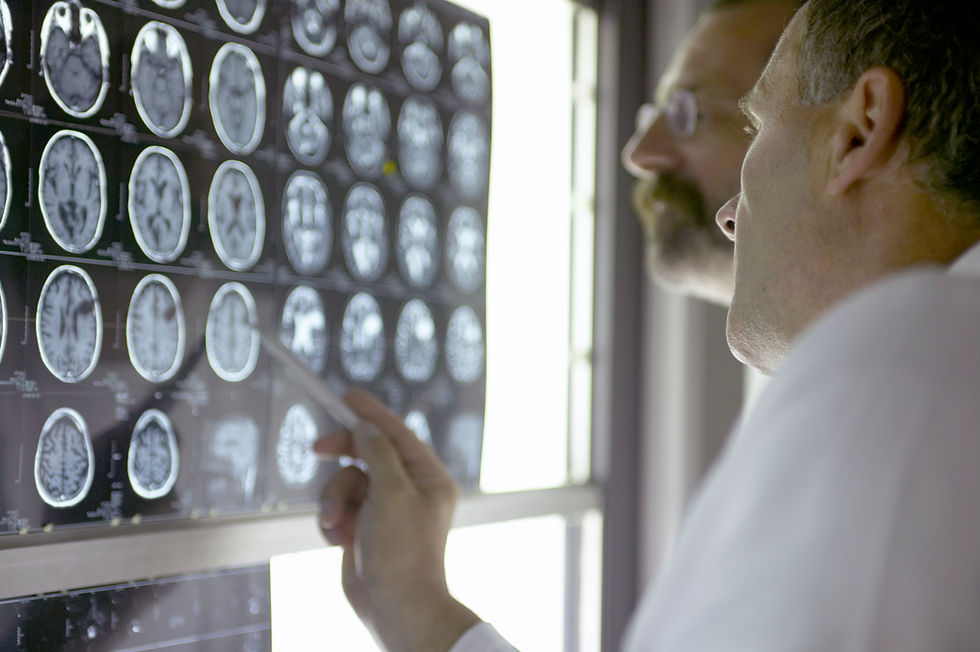The Other You: Exploring the Strange New World of Digital Twins in Medicine
- Oct 1, 2025
- 3 min read
Article by David H. Beyda, MD

Chair and Professor, Department of Bioethics and Medical Humanism
College of Medicine-Phoenix, University of Arizona
I’ve spent my career at the bedside in the ICU, where uncertainty is not an exception but the rule. Patients arrive in crisis, ventilated, sedated, sometimes clinging to life by a thread. Families gather at the foot of the bed, desperate for answers that medicine can’t always provide. In those moments, I’ve often wished for more clarity, some way to see ahead before taking the next step.
Now, medicine is building something that promises exactly that: the digital twin. A replica of a patient’s body, created from scans, lab results, and genetic data. A simulation that can predict disease, test medications, and even run a surgery before a scalpel ever touches skin.
Imagine what that could mean in critical care. Before giving a high-risk drug, we could test its effect on the twin. Before placing a patient on ECMO, we could see how their digital body would respond. In a unit where minutes matter, where every decision carries the weight of survival, a digital twin could offer a kind of foresight that intensivists have never had.
The promise is dazzling, but as an ethicist, I know that every breakthrough comes with its own shadow.
Who owns the twin? If it’s built from my patient’s blood, their genes, their scans, shouldn’t it belong to them? Yet hospitals will hold the data. Tech companies will design the models. Insurers will want access. The copy that resembles my patient could, in practice, belong to anyone but them.
And what about knowledge? Suppose a twin predicts a devastating outcome like dementia, organ failure, death within months. Do we share that with families already drowning in fear? Do patients have the right not to know, even if the prediction could change their care? I’ve sat with families crushed by information they weren’t ready to hear. In the ICU, where hope is fragile, more knowledge isn’t always more humane.
Then there is trust. I’ve watched families struggle when two physicians disagreed about the next step. Now imagine adding a machine into the mix, a simulation that speaks with the authority of thousands of prior cases. If the twin says one thing and I say another, who will they believe? And if they trust the copy over the clinician, what happens to the bond between patient, family, and physician? The bond that has always been the heart of care?
Digital twins also raise a deeper question: can a simulation ever stand in for a person? Drug companies see an opportunity to conduct trials on thousands of twins instead of vulnerable patients. That saves lives, but it also risks shifting medicine into a space where the body becomes secondary to the data. Safety and efficiency are gained, but what happens to the human experience of illness?
And fairness cannot be ignored. These twins demand immense amounts of data, which many patients, especially those from marginalized communities simply don’t have. If digital twins become the gold standard of care, what happens to those who arrive without one? Will they receive a lesser form of medicine? As someone who has worked in resource-poor settings, I know how easily inequities widen when technology becomes the gatekeeper.
This future isn’t distant. Pilot programs in oncology and cardiology are already running. Pharmaceutical companies are investing heavily. Hospitals see better outcomes and fewer complications. The technology is here, and the ethics are scrambling to keep up. That’s the danger. If we let the pace of innovation dictate the rules, questions of ownership, privacy, and fairness will be settled by default. Patients will sign consent forms that they don’t understand. Clinicians will lean on models they can’t fully explain. Insurers will quietly shape policy around data patients may never see.
The ICU has taught me that the center of medicine is not technology, it is the patient. Flesh and blood. A daughter, a father, a child, lying in that bed while their family waits for news. Digital twins could become extraordinary allies in care, but only if we confront their ethical challenges with the same urgency we pursue their science. That means clear ownership. Strong privacy. And a commitment that no patient is left behind.
And still, one question refuses to let go: just because we can create a digital version of a human being, should we? Because in the end, at the bedside where life and death collide, the patient who matters most is not the glowing twin on the screen. It is the person, fragile and human, whose care will always be more than data.


Comments